July 11, 2025
Air Date: July 11, 2025
FULL SHOW
SEGMENTS
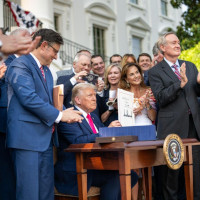
Congress Busts Carbon Budget
/ Vernon Loeb, Marianne LavelleView the page for this story
As the climate crisis brings ever more devastating floods, storms, heat waves and fires, the Republican-led Congress has slashed around half a trillion dollars in clean energy tax credits that would have reduced climate pollution and helped America to better adapt to climate change. Executive Editor Vernon Loeb and Washington Bureau Chief Marianne Lavelle of our media partner Inside Climate News join Hosts Steve Curwood and Aynsley O’Neill to survey the likely consequences for the climate, environment, and our democracy. (17:54)
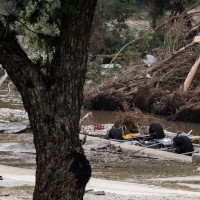
Climate Disruption Worsens Flood Risks
View the page for this story
Catastrophic floods like the one that claimed at least 100 lives in Texas this July are becoming more likely because of climate disruption. Meteorologist Sean Sublette is the owner of Sublette Weather and Consulting. He joins Host Aynsley O’Neill to talk about the atmospheric and climate conditions that contribute to flood disasters, and the growing need to be weather aware (09:38)
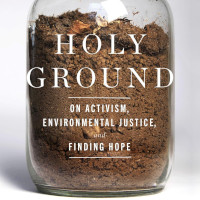
America's Rural Sanitation Crisis
View the page for this story
About a quarter of US homes use private septic systems, which can run you thousands of dollars. And more than a million people in America today are living without indoor plumbing, too often in appalling, unhealthy conditions. Catherine Coleman Flowers is working to change that. She is the founder of the Center for Rural Enterprise and Environmental Justice and has published a collection of essays called, Holy Ground: On Activism, Environmental Justice, and Finding Hope. She joins Host Steve Curwood to talk about her work to help rural families across America lead healthier and wealthier lives by improving sanitation. (18:52)
Show Credits and Funders
Show Transcript
250711 Transcript
HOSTS: Steve Curwood, Aynsley O’Neill
GUESTS: Catherine Coleman Flowers, Marianne Lavelle, Vernon Loeb, Sean Sublette
[THEME]
CURWOOD: From PRX – this is Living on Earth.
[THEME]
CURWOOD: I’m Steve Curwood.
O’NEILL: And I’m Aynsley O’Neill.
The Republican Congress passes a behemoth package that busts fiscal and carbon budgets.
LOEB: The American Petroleum Institute heralded the bill as bringing about a new era of energy dominance in America. In fact, I think it does quite the opposite. It syncs us up with old dirty energy and basically rolls back clean energy in America.
CURWOOD: Also, poor rural Americans priced out of septic systems.
FLOWERS: We've seen them anywhere from 12,000 on up. We're talking about families that are among the poorest families in the US, and they were not making that type of money. That was in some cases, half the income for the entire year for them and therefore they couldn't afford it.
CURWOOD: That and more, this week on Living on Earth. Stick around!
[NEWSBREAK MUSIC: Boards Of Canada “Zoetrope” from “In A Beautiful Place Out In The Country” (Warp Records 2000)]
[THEME]
Congress Busts Carbon Budget
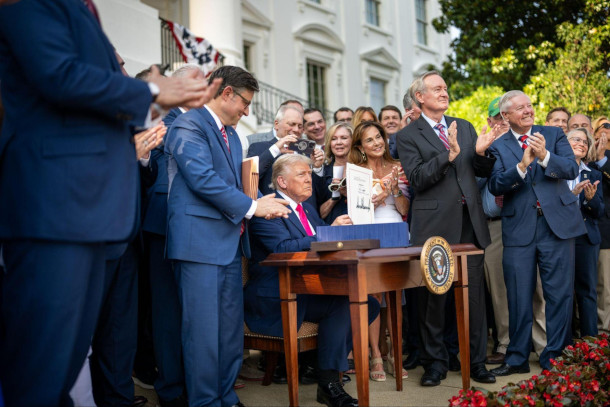
President Trump signed the budget bill into law on July 4, 2025. (Photo: The White House, Wikimedia Commons, Public Domain)
O’NEILL: From PRX and the Jennifer and Ted Stanley Studios at the University of Massachusetts, Boston, this is Living on Earth. I’m Aynsley O’Neill.
CURWOOD: And I’m Steve Curwood.
As the climate crisis brings ever more devastating floods, storms, heat waves, and fires, the Republican-led Congress has slashed around half a trillion dollars in clean energy tax credits that would have reduced climate pollution and helped America to better adapt to climate change. At the same time, the massive bill signed into law on July 4th boosted spending for immigration enforcement and the military, while keeping tax cuts for the wealthiest Americans that were set to expire in December, and also shrinking food assistance and health care for the less fortunate.
O’NEILL: So, at the same time that it directly balloons the nation’s debt by trillions of dollars, the law also wipes away key investments that would have averted some of the skyrocketing costs of dealing with worsening climate impacts. Just in 2024, AccuWeather estimated storms that made landfall in the United States caused as much as $500 billion in damages and economic losses. And that’s just the money. The dislocations and loss of life from storms like Hurricane Helene and the recent catastrophic flooding in Texas also take major emotional tolls.
CURWOOD: We’re joined now by Vernon Loeb, Executive Editor of our media partner Inside Climate News and their Washington Bureau Chief Marianne Lavelle. Welcome back to Living on Earth!
LOEB: Thanks for having me. It's great to be here.
LAVELLE: Good to be here.
CURWOOD: So Marianne and Vernon, a whole lot has been packed into this one law, but in broad strokes, what's really changing here for the climate and energy and environmental sector? Marianne, maybe you could walk us through some of the basics.
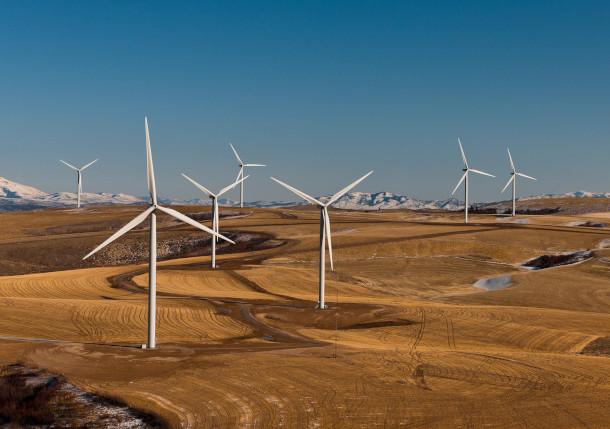
The law rolls back $500 billion of Biden-era tax credits for clean energy like wind and solar. (Photo: energy.gov, Wikimedia Commons, public domain)
LAVELLE: Yes, this really eliminates the historic investment in clean energy that Congress made only three years ago. No more tax credits for buying an electric vehicle or an efficient heat pump or solar panels for your house. No more tax incentives for energy efficiency improvements and then there is probably the biggest rollback, which is phasing out the tax credits for wind and solar energy. That's going to happen under a very aggressive timeline. The bill, at the same time, is opening up federal land and water for oil and gas drilling. It increases the profitability of oil and gas drilling on federal land, and it even creates a new subsidy, basically, for coal. Alongside of all of these other things, it really ends what was a historic investment in the poor and minority communities that bear a disproportionate pollution burden, and that was money the Trump administration was already refusing to spend. Congress has wiped it out completely.
O'NEILL: Vernon, I want to get your take on to what extent these changes align with President Trump's campaign promises. You know, what is the future of US energy looking like under a second Trump administration?
LOEB: They align pretty well with his campaign promises in that he was very clear about wanting to “drill baby drill,” very aligned with the fossil fuel industry during the campaign, and certainly that's the net effect of this bill. The American Petroleum Institute heralded the bill as bringing about a new era of energy dominance in America. In fact, I think it does quite the opposite. It syncs us up with old, dirty energy, and basically rolls back clean energy in America, wind, solar, EVs. It's really bringing about a new era of energy dominance for China, I think, is what it's actually doing.
O'NEILL: Well and this law is also going to be dealing a major blow to environmental justice, even beyond some of the executive orders we saw earlier this year which reversed federal EJ initiatives and shut down a number of EJ offices. So what is at stake for environmental justice communities here, Marianne, with the passage of this?

President Trump promised to “drill, baby, drill” during his campaign for the 2024 presidency. (Photo: Peter J Markham, Wikimedia Commons, CC BY-SA 2.0)
LAVELLE: I think you have to look at it as it's devastating for environmental justice communities, but probably for all of us, because these communities are the ones who are closest to the polluting factories, the polluting refineries, and that pollution doesn't stay in those communities. So the Biden administration and Congress had invested a lot of money in addressing some of the long standing pollution concerns in these communities, and that all has been rescinded. The Trump administration was indeed in court for the last few weeks saying they have a right to undo the contracts that were signed with all of these nonprofits and community groups and really with states and local government as well. Now this kind of gives them a backstop, no matter what happens with those court cases that are slowly winding their way through the federal court system, they can say Congress has rescinded all of this money and doesn't want to spend money the way the Biden administration wanted to.
CURWOOD: As you point out, the EJ communities are subject to the worst. But this approach would say, let's say we're talking about canaries in a coal mine. This would say that, well, you know, the canaries are in a special case, just because they're getting hit first by the noxious gas coming out of the coal mine and dying, we should pay no attention to their concerns, because there's no risk for the rest of us. I mean, that seems to be what they're saying about EJ communities. And Marianne, on this clawing back this money, these were signed contracts that were done. I mean, to what extent can the federal government legally and will the courts tolerate ripping up a contract that's been executed? I mean, doesn't our whole commercial economy run on the fact that contracts are enforceable?
LAVELLE: You could make the argument that that has been one of the hallmarks of the US economy, why the US has been such a wealthy country, because a contract is a contract here, and if the federal government is going to be allowed to break contracts, then everybody in the corporate community will feel they can follow suit. It really is a very new and disturbing direction for not only the environmental justice and clean energy community, but for the business community at large.
LOEB: And I might add that the grounds on which these contracts were broken were extraordinary. Trump basically ended the environmental justice grants on the grounds that they were illegal DEI programs. And in fact, environmental justice is something completely separate and apart from DEI, and environmental justice communities have been harmed disproportionately by our environmental policy, by pollution for decades, and these grants were the beginning of a sort of down payment on those harms. So to call them illegal DEI programs is again something the courts can look at, but it is just flatly erroneous.
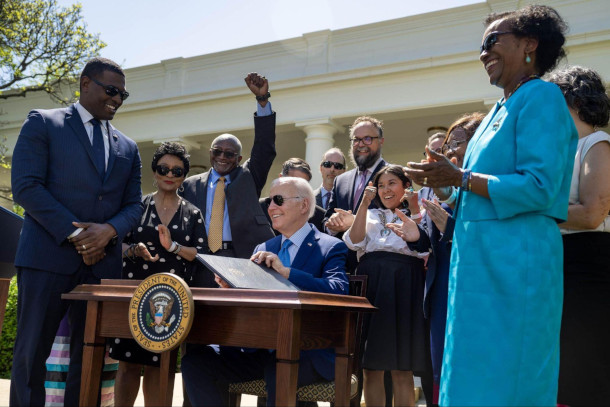
The law rescinds funding environmental justice communities had received under President Biden’s Inflation Reduction Act. Above, President Biden signs Executive Order, “Revitalizing Our Nation’s Commitment to Environmental Justice for All”, Friday, April 21, 2023. (Photo: The White House, Wikimedia Commons, Public Domain)
LAVELLE: It erases the history of these communities.
LOEB: Exactly.
CURWOOD: Some would say, and recent events have really underscored this, that this is no ordinary time to be using tax and spend provisions to deal with a crisis like the climate crisis we face right now. Vernon, Marianne, what kind of trouble do you think this legislation is going to get us in vis a vis the climate? I mean, what happens to emissions and what happens to protections for people from the ravages of these storms and floods and fires and such?
LAVELLE: So the bill is expected to contribute an additional 470 million metric tons of greenhouse gas emissions per year by 2035, and that's the equivalent of 100 million gas powered cars per year. We're going to be far from our goal of cutting emissions in half by 2030 and getting down to net zero by mid century. So this really takes away our ability to eliminate emissions on the time frame we need. Most people say wind and solar, they are pretty mature industries at this point. They're still going to happen, but they're not going to happen with the speed that we need to address the climate crisis.
LOEB: And as we continue to pour hundreds of millions of tons of carbon into the atmosphere, we're going to see more of the kind of flooding that we saw last weekend in Texas and North Carolina. We just saw historic wildfires in Los Angeles, and a lot of people fear a really bad fire season coming on. So as we fall farther and farther behind on our emissions goals as a planet and as a country, we're going to see more and more of this extreme weather become a daily fact of our lives.
[MUSIC: David Hazeltine, “I’ll Let You Know” on The New Classic Trio, Sharp Nine Records]
O’NEILL: We’re speaking with Vernon Loeb, Executive Editor, and Marianne Lavelle, Washington Bureau Chief both with our media partner Inside Climate News. We’ll be back in just a moment after we take a short break. Stay tuned to Living on Earth.
[MUSIC: David Hazeltine, “I’ll Let You Know” on The New Classic Trio, Sharp Nine Records]
ANNOUNCER: Support for Living on Earth comes from the Waverley Street Foundation, working to cultivate a healing planet with community-led programs for better food, healthy farmlands, and smarter building, energy and businesses.
[CUTAWAY MUSIC: David Hazeltine, “I’ll Let You Know” on The New Classic Trio, Sharp Nine Records]
O’NEILL: It’s Living on Earth, I’m Aynsley O’Neill.
CURWOOD: And I’m Steve Curwood.
And we’re back now with our colleagues from Inside Climate News, Executive Editor Vernon Loeb and Washington Bureau Chief Marianne Lavelle. We’ve been talking about the consequences for the climate, environment, and our democracy that come from the major tax and spending package signed into law on July 4th by President Trump.

The passage of this law is expected to add 470 million metric tons of carbon dioxide to the atmosphere per year, the equivalent of 100 million gas powered vehicles on the road annually. (Photo: Prayitno from Los Angeles, USA, Wikimedia Commons, CC BY 2.0)
O’NEILL: And as I think on this bill, something that stands out to me is that a number of the clean energy initiatives that were happening under the Inflation Reduction Act were specifically going to Republican states, Republican districts. And when this bill was on the table, a lot of Republican members of Congress were first standing up for clean energy tax credits, but then ultimately caved, huh, Marianne?
LAVELLE: Yeah, so many of the Biden administration folks, when they were leaving office, said that their clean energy policy will really be bulletproof against a political backlash, because it benefits Republican states and Republican districts so much, what happened was there was some pushback, but when push came to shove, those members, even those who voiced concern about getting rid of all of these incentives, they looked at what it would mean in their districts if they went up against President Trump, and they felt they would pay a very high political price for that. It would be worse than the price they pay for this bill, which will cut off future jobs in their districts.
O'NEILL: Now Marianne, there's something like 800 plus pages, and I'm hoping that somewhere we might be able to find some sort of silver lining, some sort of positive thing for the environment. So what if anything was able to be negotiated while this bill was making its way through the house and through the Senate?
LAVELLE: Well, there were a couple of things that even Republicans in Congress stood in front of and didn't allow to happen. One of the big things was there was an effort to put in this bill the sell off of millions of acres of public lands across 11 western states, and even the Western Republicans said, no, we're not going to allow that to happen. Nevertheless, there were huge cuts to funding of the agencies that are stewards of that land, like the National Park Service. Another thing that happened very late in the Senate negotiations on this bill is someone slapped an actual tax on wind and solar, and that was negotiated out of the bill at the very last minute, and some of the Republicans from states that have a lot of renewable energy insisted that wind and solar projects get kind of a year grace period if they can get started their project within 12 months of this bill's passage, their tax credits will still be there. But anyone else, your tax credits are going to expire very quickly in 2027 and the analysts who have looked at that believe that that's going to eliminate at least a third of the wind and solar and renewable energy development that we were going to see over the next few years.
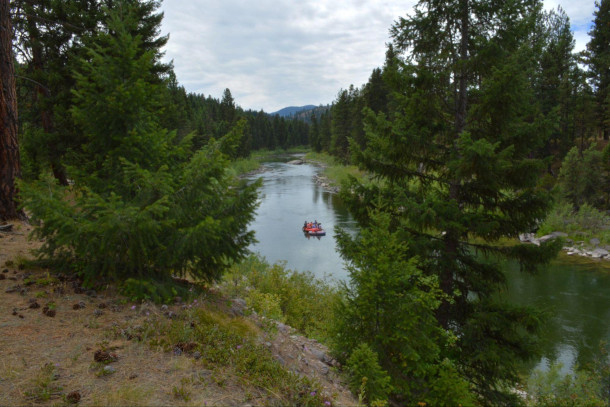
A proposal to sell off millions of acres of public lands in 11 western states was ultimately removed from the final bill. Shown above is Blackfoot River, Montana. (Photo: mypubliclands, Wikimedia Commons, public domain)
CURWOOD: What's happened to the legislative process here? It seems that the filibuster, which used to mean that a sizeable minority of people could stop things that they thought were fairly objectionable, has gone out the window. I mean, in this bill, for example, Trump got to push through a hike in the debt limit for the country by trillions of dollars, subject on just a 51-vote margin. What's happened to the democratic process in legislation now?
LAVELLE: Right. Whether or not you like the filibuster, the point of it was to bring the members of Congress together, to bring both parties together, and to come up with legislation that really represents a good amount of the views of the country that really kind of getting over that partisanship. Now for many years, some of the biggest policy measures have been passed through this special kind of legislation called budget reconciliation, which allows them to get past the filibuster, really sidestep it, and as a result, all of these big policy measures on climate as well as on health care, the tax cuts, all are being passed through these budget reconciliation bills to an extent we haven't seen before. So it really reinforces that polarization and reinforces the idea that we don't have a consensus or a shared really view of the direction of the country, and what we see in the future is just see sawing back and forth between these two highly polarized views.
O'NEILL: And Vernon and Marianne, with all this happening at the highest level of federal government, what do you see as the practical way to push back against a law like this for the sake of climate action and environmental protection?
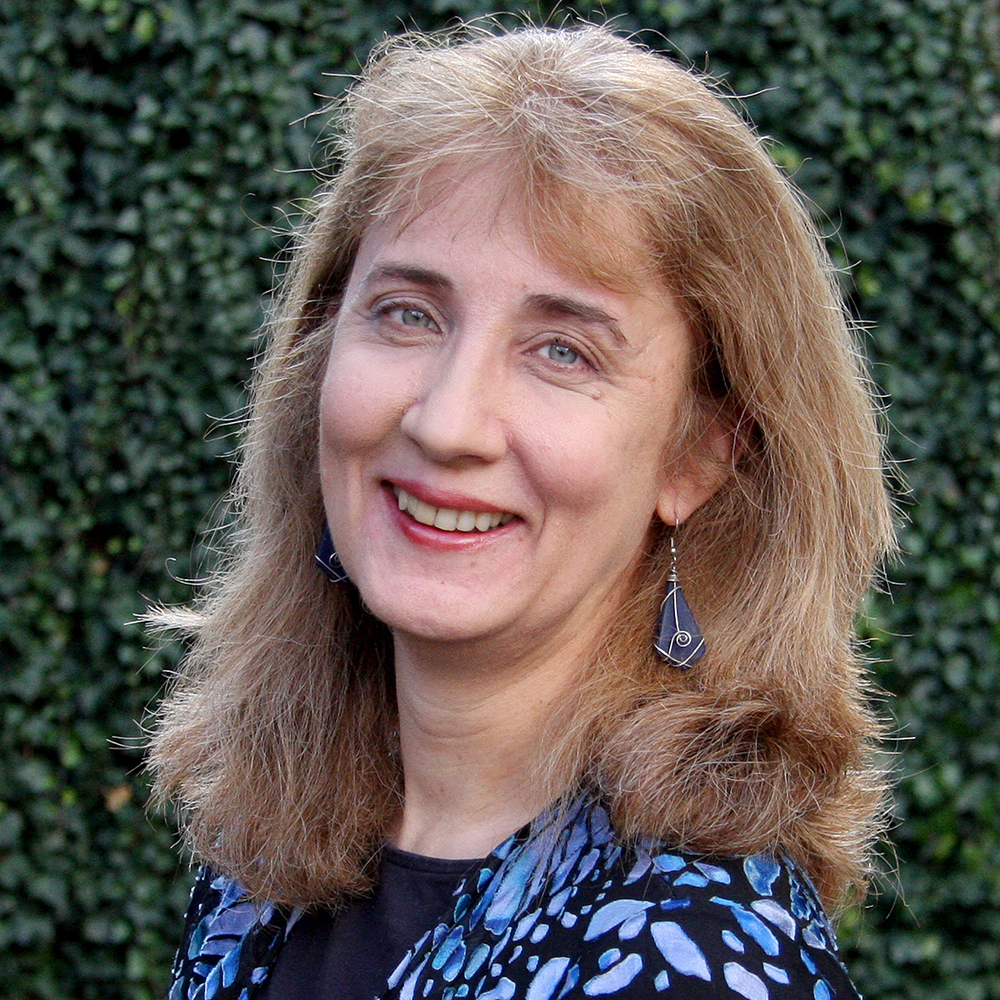
Marianne Lavelle is the Washington Bureau Chief for our media partner, Inside Climate News. (Photo: Courtesy of Marianne Lavelle)
LOEB: Well, politically, I think, you know, all eyes are on the 2026 midterms. The Democrats need, I think, a swing of only three seats in the house to take control of the House, and they need four seats in the Senate, and I think their prospects are more difficult in the Senate, but certainly not impossible. Trump's approval ratings are at historic lows right now for a first-year President, around 40%. So to realign in some fundamental sense, it's going to be democracy, and democracy is something we talk a lot about now as we seem to be heading toward a more authoritarian future. So we shall see in two years. In the meantime, you know, the battles go on in the courts, which it's pretty mixed bag so far. Trump has lost a lot of decisions, many of which he hasn't paid attention to. The Supreme Court seems pretty friendly to Trump, and I think he sees, ultimately, the Supreme Court as an ally. And we're seeing increasingly groups of scientists and former government officials coming together outside of government to try to keep track of the things they were doing inside of government, and at the very least sound the alarm. Marianne was telling me the other day about how a group of environmental justice officials from the Trump administration have now gotten together and formed a sort of private council to keep emphasis on environmental justice and what these communities in this country are owed.
LAVELLE: Right, this is all part of the backlash we're seeing from this really extreme policy agenda that the Trump administration has gone forward with, including in this bill, and in that backlash, there is hope.
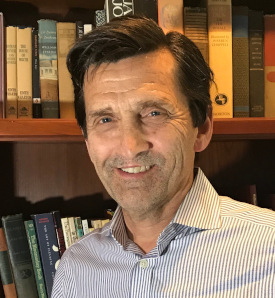
Vernon Loeb is Executive Editor for our media partner, Inside Climate News. (Photo: Courtesy of Vernon Loeb)
CURWOOD: Well, I want to thank you for taking the time with us today. Vernon Loeb is the Executive Editor of our media partner Inside Climate News.
LOEB: Great to be with you, Steve.
O'NEILL: And thank you, Marianne Lavelle, who is the Washington Bureau Head for Inside Climate News.
LAVELLE: Thanks so much. Glad to be here.
Related links:
- Inside Climate News | “‘Big Beautiful Bill’ Set to Slash Through U.S. Climate and Justice Drive”
- Read the law here
[MUSIC: David Hazeltine, “My Heart Stood Still” on The New Classic Trio, Sharp Nine Records]
Climate Disruption Worsens Flood Risks
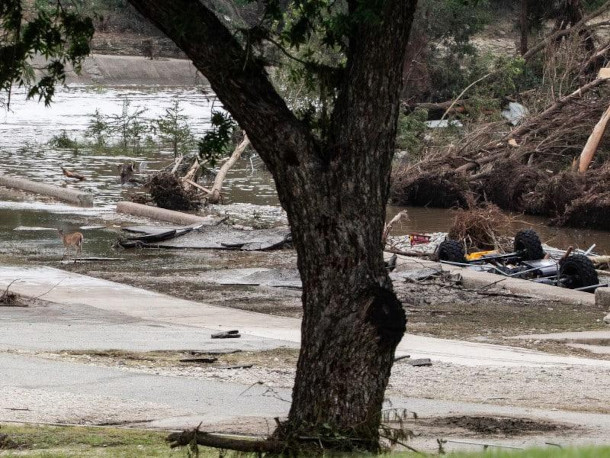
On the 4th of July, 2025, flash flooding hit Kerr County, Texas. A local river quickly rose over 20 feet in under an hour. (Photo: Courtesy of Louis Amestoy, The Kerr County Lead)
O’NEILL: In recent days multiple catastrophic flooding events have hit rural communities in the US. Heavy rain in New Mexico triggered historic flooding in the mountain town of Ruidoso. Parts of Central North Carolina also experienced flooding. And on July 4th, the Guadalupe River in Texas rose more than 20 feet in under an hour, killing more than 100 people. And as we record this broadcast, many more are still missing. Sean Sublette is a meteorologist as well as a contributing author for our media partner, Inside Climate News and the owner of Sublette Weather and Consulting. He’s joining us now to talk about the atmospheric and climate conditions that contributed to these disasters, and the growing need to be weather aware. Sean, welcome back to Living on Earth.
SUBLETTE: Thank you so much. It's good to be back to talk with everybody.
O'NEILL: What's been going on here with these incredibly intense flash floods that have been happening across the US?
SUBLETTE: Yeah. So first of all, let's back up a little bit, it is summer and it is humid, so flash flooding is not uncommon to begin with. Having said that, because the climate is warming, a warmer atmosphere tends to hold more water, meaning it can evaporate more off of oceans, out of ground moisture, out of rivers and bays, so there is more moisture available to go into clouds and then ultimately back into rainfall, in this case, heavy precipitation. And we've got good evidence from the statistics and the data that the most intense rainfall is actually getting heavier over the past 30 to 40 years. So a flash flood event today is likely a little bit worse than a flash flood event than 40 or 50 years ago. So it is not the only thing, but is a contributing factor to the fact that things are kind of getting worse.
O'NEILL: And how does flash flood prediction sort of work? You know, how do we predict rainfall, where it's going to land, on what kind of surface? And how does that all come together?
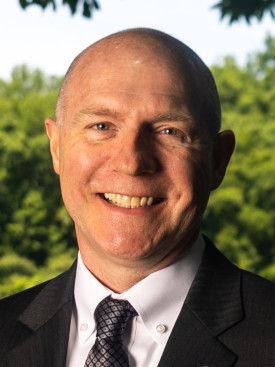
Sean Sublette is a meteorologist with Sublette Weather and Consulting. (Photo: Courtesy of Sean Sublette)
SUBLETTE: Yeah, so that's the rub with flash flooding compared to, let's say, larger river flooding, like on the Mississippi or on the Charles or the Missouri rivers, that's a very different set of scale. So when we think about flash flooding, this is very heavy rain that probably covers a couple of counties or maybe a few square miles, and it lasts for two to four hours or so. So now we've got something that is shorter in time frame and is smaller in spatial scale. And these kinds of things are more difficult to predict than larger scale phenomenon. Like in the winter time, most of our weather is driven by larger scale features in the atmosphere. During the summertime, thunderstorms and the like, are driven by smaller scale phenomenon in the atmosphere. So when we think about computer models and trying to simulate these things mathematically, they are more difficult to simulate and as a result, they are more difficult to forecast precisely. The entire weather community knew that flash flooding was likely. The question was going to be, is it bad or is it going to be catastrophic? We wouldn't know that until it begins to develop and I don't mean that it's already on top of them, but normally, in a situation like this, you can get two to three hours of warning before the water truly becomes dangerous. For example, in Central Texas, the warning went out just after one o'clock in the morning, and then it was kind of upgraded to a legit emergency three hours later. So from my aspect, I wonder, were the people in harm's way even aware that they were in harm's way? Did they understand the risk to begin with? Whose responsibility is that to understand what that risk is? So this is not to lay blame on any one person, or certainly not blame the victims here, but there is kind of this loss of information from the forecasts and the warnings to the end user and to get them to take action. And I think that's where we see a lot of the miscommunication, and a lot of what went wrong is in that process.
O'NEILL: If you were in charge of revamping how we get these warning events and these alerts all throughout the country, what would be your ideal system for informing people?
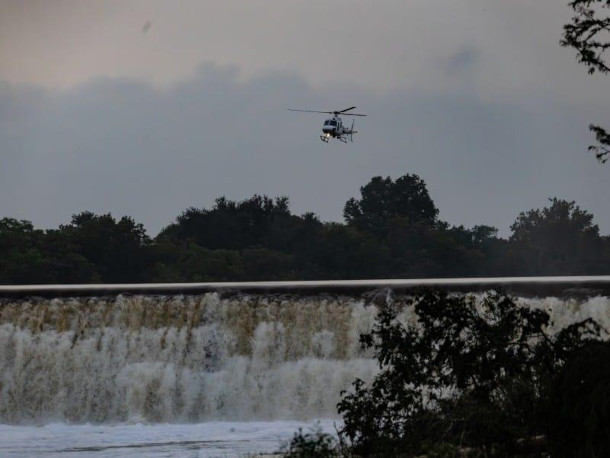
Search parties were able to rescue many of the victims of the flood. Despite their success, the death toll has reached over 100. (Photo: Courtesy of Louis Amestoy, The Kerr County Lead)
SUBLETTE: I don't think there's one perfect system at all, because we have a country that is rural. Some places it is very sparsely populated. Some places it is densely populated. Some places the cell coverage is good. Some places it's nonexistent. I think having a weather radio and being aware of the forecast every day is important, so you have an awareness of what your surroundings are going to be. So I think if we had a network where everyone was able to have a phone and get a reliable warning, that's great, but that costs a lot of money. I'm not sure how well that's going to be received. The weather radios are good, but they're not perfect either. I would tell people what I think most meteorologists would tell you and emergency managers: have two ways to get a critical weather warning and kind of be aware of your surroundings. There was a flood watch, which means conditions were favorable for flooding well ahead of the actual flood itself. So there are ways to raise awareness ahead of the event, before the event hits. But it's a question, does that message land where it needs to land, and what kind of actions are taken once the message is received?
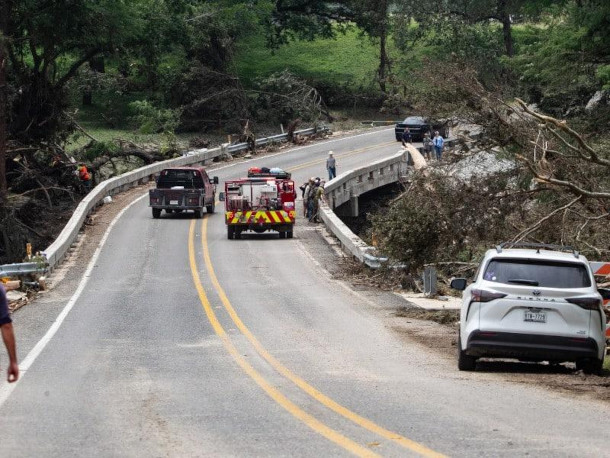
In addition to taking many human lives, the floods caused extensive infrastructure damage. (Photo: Courtesy of Louis Amestoy, The Kerr County Lead)
O'NEILL: Sean, I know that there have been recent federal budget cuts that impact weather tracking and disaster prevention. How have you been seeing that in your own meteorological experience?
SUBLETTE: I don't think that stuff has really percolated down just yet, it's still very new. I would kind of liken it to you've got a car and you just start ripping some parts out and you drive the car, it might be fine for a mile, 10 miles or 20 miles, but you know, if you took the lug nuts off the wheel, they might just fall off at any time. I think that's kind of where we are now. We're pulling things out of the car, and we're driving it along, and let's see what happens. That's kind of my concern right now, is we are taking safety nets, we're cutting holes in the safety nets right now, so we may not notice it right away. I don't think we can say that this tragedy was a direct result of the budget cuts. I do think the more you cut the budgets, the more you are raising your risk of tragedy. The weather service office was fully staffed that night, all right? There was no shortage of staff working that event that night. One position that I understand was vacant at that office was a position of Warning Coordination Meteorologist. And all of the Weather Service offices across the country, there's more than 100 of them that serve their local communities have a Warning Coordination Meteorologist, and his or her job is to literally do just that, coordinate warnings with local officials, county officials, emergency managers. Oftentimes, they will get on a call a few hours before an event takes place so that everybody is on the same page to like, hey, we really see a big flood threat coming today or tomorrow, you and your staff in your county or your town should be aware of it, and that's kind of how the whole process should start. And it's unclear to me if that happened or not, and maybe it did, maybe it didn't, but again, this is one of the more, this is just ripping another part out of a car before you drive it down the highway.
The Warning Coordination Meteorologist (WCM) position is a vital human communications link between the meteorologists at local NWS offices and local emergency managers.
If that position was vacant, it would have made it more difficult for emergency managers & the public to be aware of the threat.
— Sean Sublette (@subletteweather.com) July 8, 2025 at 9:52 AM
[image or embed]
O'NEILL: Sean, we're almost out of time here. Is there anything else you'd like our audience to know?
SUBLETTE: I would say, remain weather aware. There's weather in the short term and there is climate in the long term. Be aware of your surroundings. So oftentimes, we kind of get locked out of that. We're not paying attention to what's going on around us and this is, unfortunately, a very stark lesson in paying attention to your surroundings. Things that have not happened in the past are now starting to happen. I think about it statistically. If I took a pair of regular six sided dice and whatever kind of event that used to happen, let's say you would roll a 12, not something that happens often, but if you were to change one of the faces on those dice to a seven and get rid of the one, and you just roll it over and over again, most of the time, you still roll between a three and a 12, but sometimes roll a 13, which is like never happened before. So we need to be prepared for when the dice rolls a 13, something that has not happened before. Be aware of your surroundings. Be prepared for flooding, heat, in ways that maybe you didn't think of before and pay attention to those warnings, they can save your life. I do think it's important to understand that the climate is still warming and until we start moving away from fossil fuels for energy generation, transportation, industry, the climate's going to continue to warm, and we're going to have hotter days, heavier rain, and worsening droughts. And we need to be prepared for that, and we need to mitigate and adapt, in addition to trying to curb the warming as rapidly as possible.
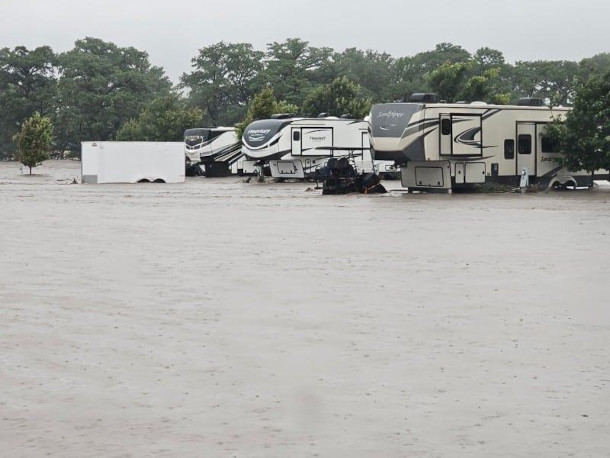
One of the hardest hit areas, in addition to a Christian summer camp, was an RV campground. (Photo: Courtesy of Louis Amestoy, The Kerr County Lead)
O'NEILL: Sean Sublette is a meteorologist and owner of Sublette Weather and Consulting. Sean, thank you so much for joining me today.
SUBLETTE: Thanks so much for having me, appreciate the time.
Related links:
- The Guadalupe-Blanco River Authority in cooperation with The Federal Emergency Management Agency report on flood history of Guadalupe River
- Learn more about Sean Sublette
- NPR | “Here’s a Timeline of the Catastrophic Texas Floods”
- AP News | “What to Know About the Flash Floods in Texas That Killed Over 100 People”
- The Weather Channel | “Satellite Images Show Devastation Of Texas Floods”
[MUSIC: Stevie Ray Vaughn, “Lenny” on The Essential Stevie Ray Vaughn And Double Trouble, Sony Music Entertainment]
CURWOOD: Coming up, health, family finances and dignity are all on the line when it comes to the sanitation crisis in rural America. Keep listening to Living on Earth.
ANNOUNCER: Support for Living on Earth comes from the estate of Rosamund Stone Zander - celebrated painter, environmentalist, and author of The Art of Possibility – who inspired others to see the profound interconnectedness of all living things, and to act with courage and creativity on behalf of our planet. Support also comes from Sailors for the Sea and Oceana. Helping boaters race clean, sail green and protect the seas they love. More information @sailorsforthesea.org.
[CUTAWAY MUSIC: Stevie Ray Vaughn, “Lenny” on The Essential Stevie Ray Vaughn And Double Trouble, Sony Music Entertainment]
America's Rural Sanitation Crisis
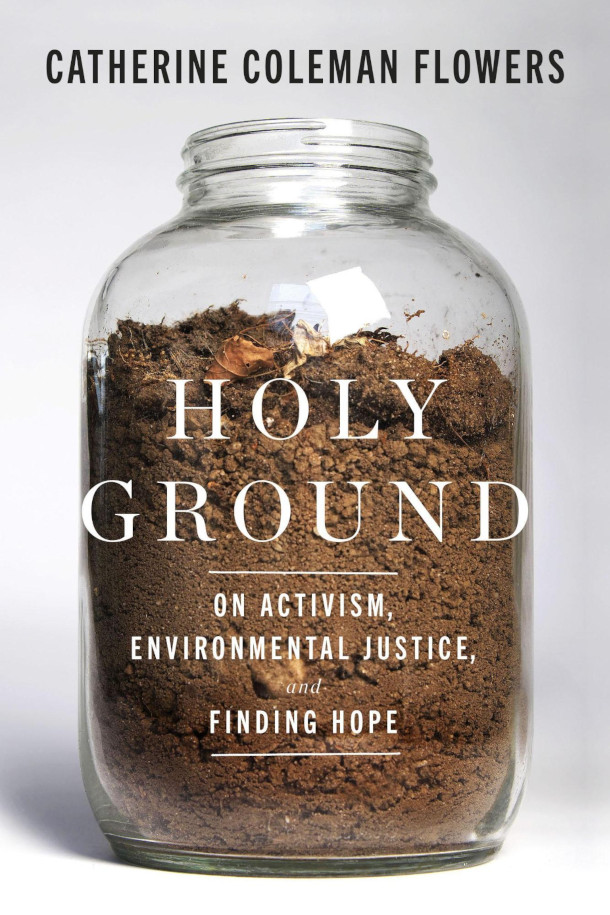
Catherine Coleman Flowers’ recent book is Holy Ground: On Activism, Environmental Justice, and Finding Hope. (Photo: Spiegel & Grau)
O’NEILL: It’s Living on Earth, I’m Aynsley O’Neill.
CURWOOD: And I’m Steve Curwood.
When most Americans flush the toilet, their waste goes to municipal sewage treatment plants, paid for by taxes and fees. But it’s different in rural America. About a quarter of US homes use private septic systems, which can run you thousands of dollars for effective waste water management or composting. And more than a million people in America today are living without indoor plumbing, too often in appalling, unhealthy conditions. Catherine Coleman Flowers is working to change that. She is the founder of the Center for Rural Enterprise and Environmental Justice, which helps rural families across America lead healthier and wealthier lives by improving sanitation. She’s from predominantly Black Lowndes County, Alabama, where in 2023 public health researchers found as many as 80 percent of residents did not have access to reliable sewage systems. Catherine Coleman Flowers helped bring the federal government and the state of Alabama together to fund sanitation assistance for rural families in Lowndes County. But earlier this year the Trump administration cancelled that agreement. She has published a collection of essays called, Holy Ground: On Activism, Environmental Justice, and Finding Hope, and she joins us now. Catherine Coleman Flowers, welcome to Living on Earth.
CATHERINE COLEMAN FLOWERS: Thank you. Thank you.
CURWOOD: So let's go back now to your childhood there in Lowndes County. I think you were the daughter of a couple of civil rights activists?
CATHERINE COLEMAN FLOWERS: Yes, I am.
CURWOOD: And what was your childhood like, and how did their activism shape yours?

Catherine Coleman Flowers is an environmental and climate justice advocate. (Photo: Amanda Pitt)
CATHERINE COLEMAN FLOWERS: Well, my parents were like the jailhouse lawyers of our community. Everyone that had a problem came to them, but we also saw and they hosted a lot of people who were activists, like Stokely Carmichael, a lot of people that were part of SNCC would be in and out of our home. I got a chance to go to meetings. I didn't want to go to meetings, but my parents went to meetings. They weren't leaving us at home alone, so we went with them, and I guess a lot of things I learned and listened while I was attending those meetings about the importance of community and working with your community and working with the grassroots. But I also learned a sense of community by looking at the principles of SNCC, which I still carry today, and because of the work that my parents did before me in Lowndes County, I think I stand on their shoulders. So because of my parents and their activism and what I was exposed to, I think it prepped me to do what I'm doing today. And I think teaching only sharpened my tools as a community activist, to be able to go back and work in the community that I'm from.
CURWOOD: So probably not everybody knows the acronym SNCC, if they haven't paid attention to the civil rights movement, the Student Nonviolent Coordinating Committee. What did SNCC mean to you folks in Lowndes County? Because there's the history you know. On one hand, you have the image of the Black Panther, which emerges there, which is just fascinating, and this call for nonviolence, and you have Stokely Carmichael, so it was a pretty intense crucible. What was that like for you?
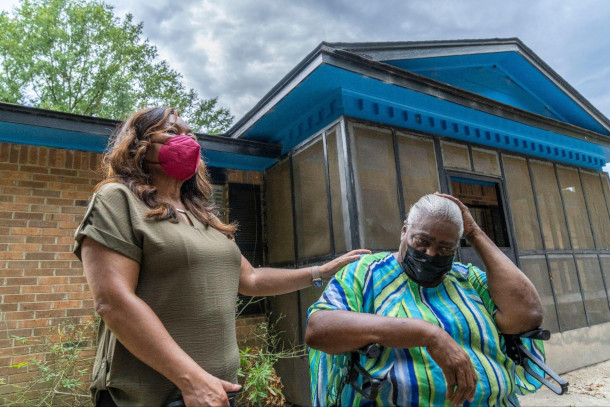
Catherine Coleman Flowers (left) and Lowndes County homeowner Charlie Mae (right). Charlie lives across from an open sewage lagoon in Hayneville, Alabama. Her yard will flood with sewage because of the outdated waste management system. (Photo: Lance Cheung, U.S. Department of Agriculture, Flickr, Public Domain)
CATHERINE COLEMAN FLOWERS: Well, you know, I grew up, my father was a vet. He believed in protecting his family, and like everybody in Lowndes County at that time, they had to have their own weapons to protect themselves, because Lowndes County was known as Bloody Lowndes. A lot of people died in Lowndes County, including Viola Lluzzo, who was a white housewife from Detroit, who was killed there. There was a seminarian who was killed there as well, Jonathan Daniels, who was white. So they didn't care whether you were Black or white at that particular time, they used violence to intimidate people. But what was significant about the Student Nonviolent Coordinating Committee was that they were college students. Stokely Carmichael was a college student from Howard University, but there were many other college students that came to Lowndes County and helped the local people organize for the right to vote, and they organized their own political party called the Lowndes County Freedom Organization, and they took as their emblem the Black Panther. And the Black Panther actually did not come out of Oakland, California. It came out of Lowndes County and went to Oakland because they saw what was happening there. And some of the people that were in Oakland actually spent time in Lowndes County as well. So just to know that there were poor people who, for the most part, had been sharecroppers, were now running for office and studying democracy and using the Constitution after the signing of the Voting Rights Act, to take control of their own destinies was very important, and I think that Lowndes County is still leading the way in that regard as it relates to sanitation today.
CURWOOD: You write about the great rural divide, and, in particular, when you talk about this, you say that people were getting criminally charged for not having proper sanitary disposal. You call that the criminalization of poverty, and I mean beyond the impact of the monetary fees and the threat of jail time, how does that public health approach affect the people who are being targeted?
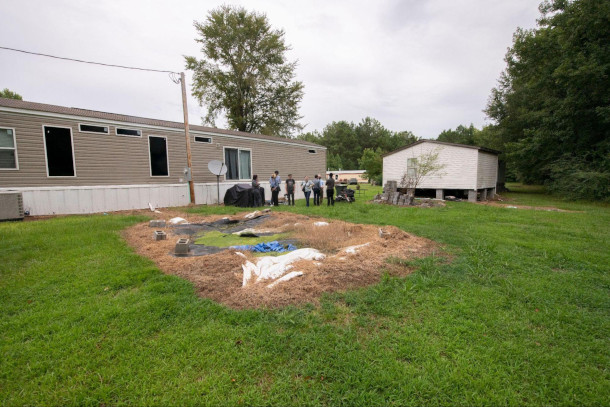
Catherine Coleman Flowers and Lowndes County homeowners lead a tour group learning more about the failing septic system in this Lowndes County property. (Photo: Lance Cheung, U.S. Department of Agriculture, Flickr, Public Domain)
CATHERINE COLEMAN FLOWERS: I think it makes them afraid. It makes them feel less than, and a lot of people, instead of talking about the problem, they tried to hide the problem, and they also took it personal. They thought that it was something that they created. But there are whole lot of things that led to that problem, and what we're trying to do is make sure that people are aware of that and they go and see it for themselves so that we can find a solution that is long term, because we haven't found it yet.
CURWOOD: Why is it that here in America that people live with septic systems, with sanitary systems, is the word that we use, that are like some poor place in the third world?
CATHERINE COLEMAN FLOWERS: I think that it's here because it's in rural communities. I think that in the urban areas, you can flush and forget in some cases, although climate change is changing that. You know, I was just in Mount Vernon, New York, where I went in 2021 because sewage was running back into the streets and in people's homes. But fortunately, they had a governor that found $150 million to get to the city, and they had a progressive mayor that wanted to change that, and consequently, they ended up changing it. They ended up fixing the problem. Instead of having 500 sewer backups annually, they're now cut it down to less than 50. But that was largely because of climate change. They're getting more rain. The infrastructure is failing throughout the United States, and we need to change that, and that's one of the things that we're trying to highlight. But in rural communities, people don't see it. They don't get to see what's happening there, because the media is not there. A lot of people have not visited rural areas. There are people that are making policies from the top down about rural communities and about monies that should go into rural communities. They haven't spent any time in a rural community. They don't know what it's like. So if you are living in a rural community, even in Massachusetts, a lot of people are on onsite septic. And when they're on onsite septic, it is the homeowner's responsibility in a lot of cases to maintain it, but there's more that go into it. In Lowndes County, we have high water tables. I'm sure in the coastal areas of Massachusetts, they have high water tables. There are coastal areas around the country where there are high water tables. With sea level rise, meaning that a lot of that water has been pushed underground. These systems don't function the way they were designed to function. But what we have not done is kept up with the technology and design systems that should work. Because what we found out initially, there were people that were straight piping, meaning that when they flushed their toilet, it goes straight out onto the ground. However, we also found, we did a house to house, survey that people had paid for onsite septic and it wasn't working properly. Meaning, when it doesn't work properly, it pushes the sewage back into their homes, comes back into a bathtub; it can come into a shower; it can just flood the home. We've seen that as well. So those are the problems that we have found. When we first started working on this in 2002, a lot of people thought that, oh no, it's just a problem with these poor Black people in Lowndes County who cannot afford septic. But it's more than that. We have found that this problem exists throughout rural America, and even when we were trying to bring attention to it, nobody was interested. The major media wasn't interested until we did a parasite study. We did that parasite study at Baylor's National School of Tropical Medicine, and we found hookworm and other tropical parasites in Lowndes County. And it became international news that the richest country in the world had these Third World conditions. Then people start paying attention.
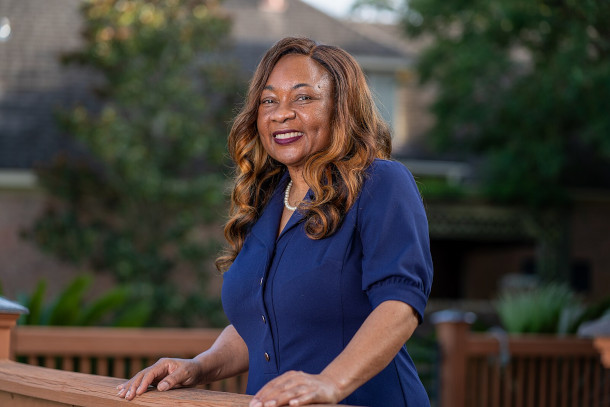
Catherine Coleman Flowers received a MacArthur Fellowship Grant in 2020. (Photo: John D. and Catherine T. MacArthur Foundation, Wikimedia Commons, CC BY 4.0)
CURWOOD: I think people, and I don't think I'm spoiling things to tell people in advance. They're going to find as part of your story that you have dealt on both sides of the aisle with important politicians. You're from Alabama. Jefferson sessions was a prosecutor, there a senator. And you talk about having a connection, having a dialog with Senator Sessions. And many people say, wait, wait, wait, this woman from the Black Belt of Alabama is dealing with Sessions? Didn't he like the KKK? And you say?
CATHERINE COLEMAN FLOWERS: What I'm saying is that I'm from Alabama, too. And being from Alabama, I'm trying to help get raw sewage off the ground. And if Jeff Sessions has the power to do that, and he understands the problem, I'm going to work with him. I think sometimes we don't have solutions because we're looking for the perfect. We will never have that. But the way he and I connected, I’d just moved back to Alabama, and I went to a town hall meeting that he hosted, and he was talking about what he was doing in Washington and how they had all this money available for rural communities. And I asked the question, where Senator Sessions, how can we get this money since it requires a 25% match and we don't have a tax base? How do poor communities and rural communities get access? And he came to me afterwards, and he said, Catherine, I'm glad you asked that question, because I've been asking that question too. I don't know the answer. I said, 'Well, we can work together on finding this answer.' And then at a point, because that's how our dialogue started, he told me he grew up poor in Wilcox County, Alabama, and he started telling me some things about his own upbringing, that which was similar to mine. At that particular time when I started raising issues around the wastewater situation, I started getting death threats. Senator Sessions would send people down from Washington to go to public meetings with me, to let people know that he was there standing with me as well. I had to make a decision. Do I turn my nose up and don't do anything? People have to keep in mind I'm from Lowndes County first. Because I'm from Lowndes County first, I've learned a few things. One of the things is that we have to leave room for transformation. I learned that from Bryan Stevenson. You know, and if I'm a Christian, I have to also be forgiving. I feel that sometimes, we have to, people can learn from us. They may not know because of the kind of folk that they've been around, but if they spend time around someone who is selfless and not interested in politics, but interested in finding the things that we have in common and trying to work from that point, I think we would have less strife and less division in this country.
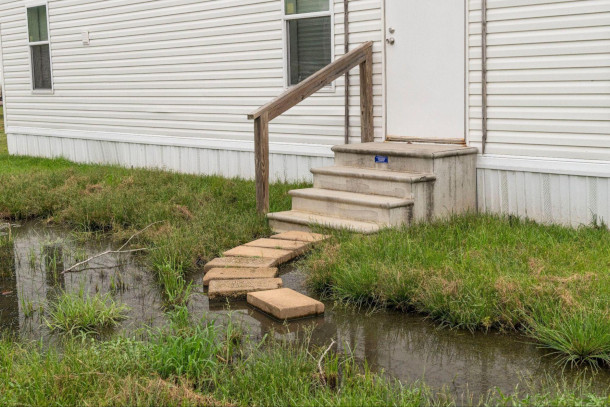
This mobile home in Lowndes County, Alabama, is being flooded by sewage from its failing septic system. (Photo: Lance Cheung, U.S. Department of Agriculture, Flickr, Public Domain)
CURWOOD: Tell me the story that you have in your book about the visit you had from Bernie Sanders to try to understand about the sanitary problem.
CATHERINE COLEMAN FLOWERS: Well shortly after the parasite study was released and went public, we had a visit from the UN Special Rapporteur on Extreme Poverty. And when he came to Lowndes County, he actually said that the conditions he saw there were conditions he never expected to see in America, but he had seen in many Third World countries. After he left Lowndes County, he went to Washington, and he met with Senator Sanders and shared with him what he had seen. And I heard from Senator Sanders. He called me and asked me to come to Washington to speak at a town hall meeting. And I took that opportunity, not only to go there, but to invite him to come to see it for himself. And he did. And when he came to see it, like I tell everybody, when you see it, you don't unsee it. And he had the opportunity to go and visit in a home of a family who lived in a single, wide mobile home. The house was full of mold. The floors were weak. She was straight piping. She had to put traps inside her home to catch opossums that were coming inside of her home. Her daughter was nine years of age and sleeping on a CPAP. So if the the conditions were horrible. But a lot of politicians and a lot of wealthy people never get a chance to go and see the other side and see how people live in those conditions. But Senator Sanders got a chance to see it. But I think that what happened as a result, he saw it, he wanted to help, and I got a call from him later, asking me to join the Biden Sanders Unity Task Force, because he was withdrawing from the presidential race, and asked me to get on this task force that was headed by John Kerry and AOC to talk about environmental justice and climate change, and that gave me the opportunity to really push the sanitation issue to the national level, and hopefully to a level of policy where maybe some eventual solutions were going to come, because there were people listening that can make a difference if Biden had won the election, and he did.
CURWOOD: The Trump administration recently scrapped the work that you did with the Biden administration with the state of Alabama to correct the sanitary issues right there in Lowndes County and some of the other Black Belt communities in Alabama. What is that case about? And how does this announcement make you feel? And of course, what are these communities to do? What's the way forward for them?
CATHERINE COLEMAN FLOWERS: After the parasite study came out, we filed a complaint with our attorneys at Earthjustice, with Health and Human Services, and that complaint ended up being investigated by DOJ under the Biden administration, and they came to a resolution with the state Health Department to find a solution to the wastewater problem. That solution was to put money into the county, and some of it went through the state for the purpose of putting in septic systems for families that could not afford it, and to prioritize that the households that needed them the most. And recently, the Trump administration announced that they were ending this resolution, and they characterized it as an illegal DEI initiative, which I thought was a mischaracterization of the problem. It is striking a nerve with people, because people are now understanding that it's not just Lowndes County. This particular initiative led to not the resolution itself, but the Biden administration had announced a Closing of Wastewater Access Initiative that included 11 counties from throughout the United States, including areas in West Virginia that were having problems as well with sanitation. And what does it mean? Well, the Health Department says that they were going to continue to put in place septic systems as long as the money lasts. So we don't know how much money has been spent and how much money still remains and how many families will be impacted. But clearly we will continue to have a problem with sanitation in Lowndes County.
CURWOOD: What does it cost to have appropriate sanitation? What would it cost to really remedy it?
CATHERINE COLEMAN FLOWERS: The last septic system that we tried to work on and have put into a home was actually the home of the person that Senator Sanders went to visit, but unfortunately, she died of COVID. But that particular system was around $28,000. We've seen them anywhere from $12,000 on up. We're talking about families that are among the poorest families in the U.S., and they were not making that type of money. That was in some cases, half the income for the entire year for them and and therefore they couldn't afford it. But I think what I've seen is that in this country, we pay for what we want, and if we should never say that it's too expensive to put in place sanitation for poor families because of the cost. We don't care what we pay for more affluent areas. There's probably no affluent area in the United States, especially no urban area, that has a sanitation system that was not paid for by taxpayers’ money.

Catherine Coleman-Flowers (right), Vice Chair of the White House Environmental Justice Advisory Council, arrives with President Joe Biden (left) to an Executive Order signing on environmental justice, Friday, April 21, 2023, in the Rose Garden of the White House. (Photo: Cameron Smith, Official White House Photo, Flickr, Public Domain)
CURWOOD: So as we move towards closing here, how does your faith and how do the matters of faith really help us at this juncture?. We have tremendous political turmoil. We have things like failed sanitation in perhaps the most affluent nation on Earth. We seem to be in a host of trouble in a number of different ways. How can faith move us forward from this point? What's your advice to people who might want to seek faith as a way to move forward?
CATHERINE COLEMAN FLOWERS: I think we should have faith in action, because my father used to tell me, Catherine, first you pray and then you act. Because he said, if you make one step, he'll make two. And I believe that. I believe that. I think we have to be engaged, we have to be active. And when things get hard and our anxiety gets the best of us, that's when we stop and pray. We stop and pray, and then we ask for guidance and direction, sleep on it and get up and be active the next day.
CURWOOD: So we solve it by moving?
CATHERINE COLEMAN FLOWERS: Yes and taking action, but some type of movement, whether it's voting, writing an op-ed, whether it's going organizing, whether it's talking to young people, getting them engaged, whatever your action is, because there's so much to be done on so many different levels that there's room for everyone to do something.
CURWOOD: Catherine Coleman Flowers is the author of Holy Ground: On Activism, Environmental Justice, and Finding Hope. Thank you so much for joining us.
CATHERINE COLEMAN FLOWERS: Thank you for having me.
Related links:
- Find a copy of Holy Ground (Affiliate link supports LOE and indie bookstores)
- The Center for Rural Enterprise and Environmental Justice
- Web page link on Lowndes county from EJI.org
- Yahoo News | “President Biden, Catherine Coleman Flowers Speak on Environmental Justice”
- Inside Climate News | “Trump Announces ‘Termination’ of ‘illegal DEI’ Settlement Over Raw Sewage in Poor, Majority Black Alabama Communities”
[MUSIC: Ben Tankard, “Melodies from Heaven” on Shine!, Benjamin Tankard]
CURWOOD: Living on Earth is produced by the World Media Foundation. Our crew includes Naomi Arenberg, Paloma Beltran, Jenni Doering, Daniela Faria, Mehek Gagneja, Swayam Gagneja, Mark Kausch, Mark Seth Lender, Don Lyman, Ashanti Mclean, Nana Mohammed, Sophia Pandelidis, Frankie Pelletier, Jake Rego, Andrew Skerritt, Bella Smith, Melba Torres, and El Wilson.
O’NEILL: Tom Tiger engineered our show. Alison Lirish Dean composed our themes. You can hear us anytime at L-O-E dot org, Apple Podcasts and YouTube Music, and like us please, on our Facebook page, Living on Earth. Find us on Instagram @livingon earthradio, and we always welcome your feedback at comments@loe.org. I’m Aynsley O’Neill.
CURWOOD: And I’m Steve Curwood. Thanks for listening!
ANNOUNCER: Funding for Living on Earth comes from you, our listeners, and from the University of Massachusetts, Boston, in association with its School for the Environment, developing the next generation of environmental leaders. And from the Grantham Foundation for the protection of the environment, supporting strategic communications and collaboration in solving the world’s most pressing environmental problems.
ANNOUNCER 2: PRX.
Living on Earth wants to hear from you!
Living on Earth
62 Calef Highway, Suite 212
Lee, NH 03861
Telephone: 617-287-4121
E-mail: comments@loe.org
Newsletter [Click here]
Donate to Living on Earth!
Living on Earth is an independent media program and relies entirely on contributions from listeners and institutions supporting public service. Please donate now to preserve an independent environmental voice.
NewsletterLiving on Earth offers a weekly delivery of the show's rundown to your mailbox. Sign up for our newsletter today!
 Sailors For The Sea: Be the change you want to sea.
Sailors For The Sea: Be the change you want to sea.
 The Grantham Foundation for the Protection of the Environment: Committed to protecting and improving the health of the global environment.
The Grantham Foundation for the Protection of the Environment: Committed to protecting and improving the health of the global environment.
 Contribute to Living on Earth and receive, as our gift to you, an archival print of one of Mark Seth Lender's extraordinary wildlife photographs. Follow the link to see Mark's current collection of photographs.
Contribute to Living on Earth and receive, as our gift to you, an archival print of one of Mark Seth Lender's extraordinary wildlife photographs. Follow the link to see Mark's current collection of photographs.
 Buy a signed copy of Mark Seth Lender's book Smeagull the Seagull & support Living on Earth
Buy a signed copy of Mark Seth Lender's book Smeagull the Seagull & support Living on Earth

